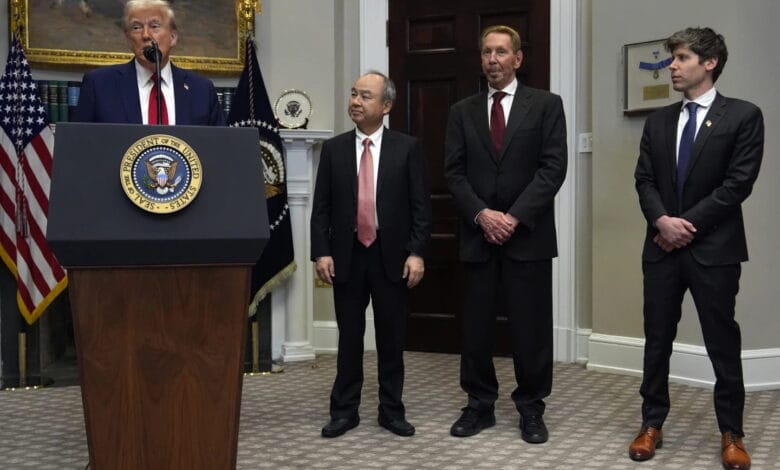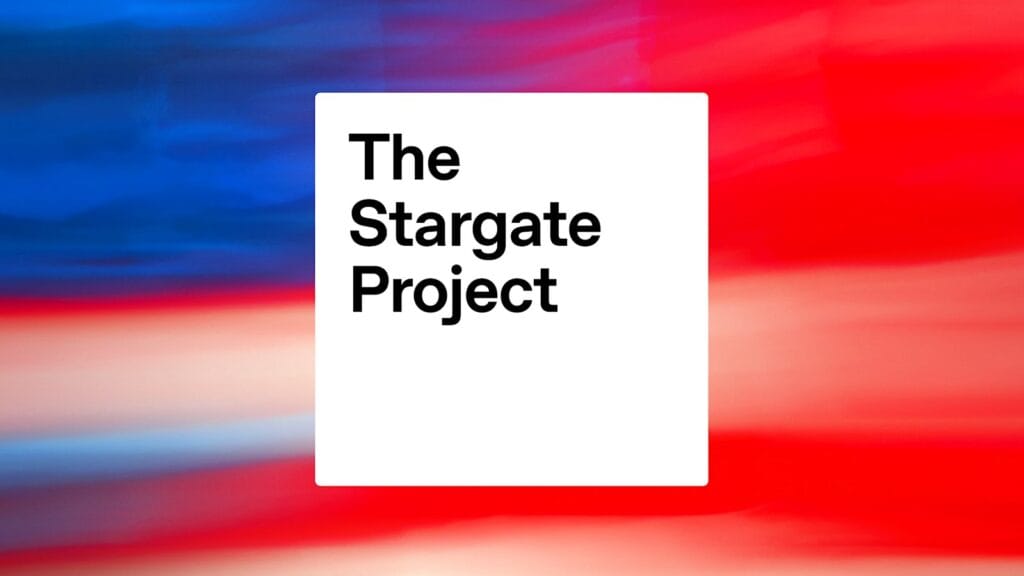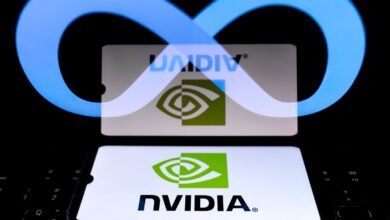Trump Unveils $500 Billion “Project Stargate” AI Initiative: A Bid for Global Dominance or a Gamble with the Future?

In a sweeping announcement yesterday, President Donald Trump revealed Project Stargate, a $500 billion public-private partnership with tech titans OpenAI, Oracle, and SoftBank. The initiative, touted as the largest AI infrastructure investment in U.S. history, aims to construct cutting-edge data centers, expand energy grids, and position America as the unrivaled leader in artificial intelligence. But beneath the fanfare of job creation and technological ambition lie pressing questions about global competition, ethical oversight, and the risks of unchecked innovation.
What’s at Stake?
The project’s scale is staggering: 10 data centers already underway, including a 1 million-square-foot facility in Texas, and promises of 100,000 new jobs. SoftBank’s Masayoshi Son called it a “new industrial revolution,” while OpenAI’s Sam Altman emphasized its potential to “redefine humanity’s relationship with technology.” Yet critics argue the initiative raises more questions than answers:
1. Why Is the U.S. Doubling Down on AI Now?
Trump framed Project Stargate as a response to China’s rapid AI advancements, calling it a “national security imperative.” The Biden administration had previously warned of China’s ambitions to dominate AI by 2030, but Trump’s approach – scrapping Biden-era AI regulations on the same day – signals a stark shift.
Is this about safeguarding democracy or winning a tech Cold War?
Geopolitical tensions are undeniably a driver. China’s $1.4 trillion AI investment plan and dominance in surveillance tech have alarmed U.S. strategists. By deregulating and accelerating private-sector partnerships, the U.S. hopes to outpace rivals. But critics warn that sidelining safeguards could lead to ethical shortcuts, such as biased algorithms or unchecked surveillance tools.
2. Who Benefits from “Stargate”?
While the White House highlights job creation, skeptics question what kinds of jobs will emerge. Will these be high-skilled tech roles or temporary construction work? And with SoftBank (a Japanese conglomerate) and Oracle (a cloud-computing giant) leading financing and infrastructure, does this blur the line between national interest and corporate profit?
The partnership’s reliance on private giants raises concerns about accountability. “When critical infrastructure is built by corporations, who ensures it serves the public good?” asks Dr. Lena Torres, a tech policy scholar at Stanford. The administration counters that private efficiency is key to beating China’s state-driven model.
3. What Happens to AI Ethics?
Trump’s rollback of Biden’s AI regulations -which required transparency in AI systems and risk assessments – has drawn sharp backlash. Ethicists fear a “race to the bottom” as companies prioritize speed over safety.
Could Project Stargate’s lack of guardrails lead to unintended consequences?
OpenAI, which once advocated for cautious AI development, now faces scrutiny for its role in a deregulated push. “This isn’t just about building data centers,” says AI safety advocate Marcus Greene. “It’s about whether we’re building systems that respect human rights or simply chasing supremacy.”
The Global Ripple Effect
The project’s geopolitical implications are already reverberating. China’s state media denounced it as “hegemonic overreach,” while the EU, which recently passed strict AI accountability laws, faces pressure to accelerate its own initiatives. Meanwhile, developing nations worry they’ll be left further behind in the AI divide.
Looking Ahead: A Pivotal Moment
Project Stargate marks a bold bet on AI as the engine of 21st-century power. Its success,or failure,could reshape everything from global economics to warfare. But as the U.S. and China vie for dominance, the world must ask: Can technological leadership coexist with ethical responsibility? Or are we trading tomorrow’s risks for today’s victories?
Final Thought: The stakes transcend borders. Whether Stargate becomes a beacon of progress or a cautionary tale may depend on answers we’re only beginning to seek.

Project Stargate FAQ
- What is Project Stargate?
Project Stargate is a public-private partnership initiated by the Trump administration in collaboration with OpenAI, Oracle, and Softbank. Its goal is to build extensive AI infrastructure in the United States, including data centers and expanded energy grids, aiming for an initial investment of $100 billion, potentially reaching $500 billion over four years. - Why was Project Stargate created?
The project is positioned as a response to China’s rapid advancements in AI and a means to secure American leadership in the field, which the Trump administration sees as crucial for national security and economic competitiveness. - Who are the key players involved?
The main partners are OpenAI (responsible for operational aspects), Softbank (leading the financial side with Masayoshi Son as chairman), and Oracle (providing cloud computing infrastructure). Other participants include Microsoft, NVIDIA, Arm, and investor MGX. - What are the potential benefits of Project Stargate?
Proponents highlight its potential for job creation (estimated at 100,000 new jobs) and economic benefits. They believe it will solidify the U.S. position in AI development and potentially lead to breakthroughs in areas like healthcare, with ambitions for customized disease treatments and vaccine development. - What concerns have been raised about the project?
Critics question the lack of ethical oversight following Trump’s reversal of Biden-era AI regulations, raising concerns about potential biases in algorithms and unchecked surveillance. There are also concerns about the influence of private corporations on a project of national importance, potentially prioritizing profits over public good. - How does Project Stargate fit into the global AI landscape?
The project has sparked reactions internationally, with China viewing it as an attempt at U.S. hegemony and the European Union facing pressure to accelerate its own AI initiatives. It also raises concerns about potential widening of the AI gap between developed and developing nations. - What is the current status of Project Stargate?
As of January 2025, construction of data centers is already underway, with at least 10 in progress, including a major facility in Texas. Regulatory uncertainty remains following the rollback of AI safety standards. - What are the long-term implications of Project Stargate?
The project represents a significant bet on AI’s future impact. Its success could reshape global economics, national security, and technological development, but it also carries risks related to ethics, job displacement, and potential misuse of powerful AI technologies.





